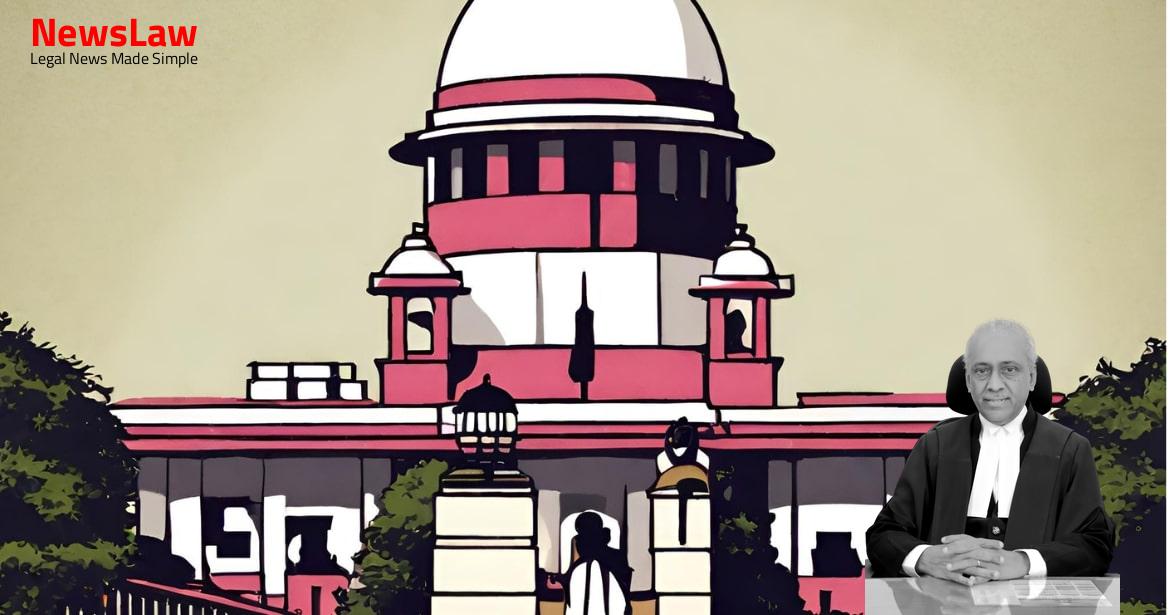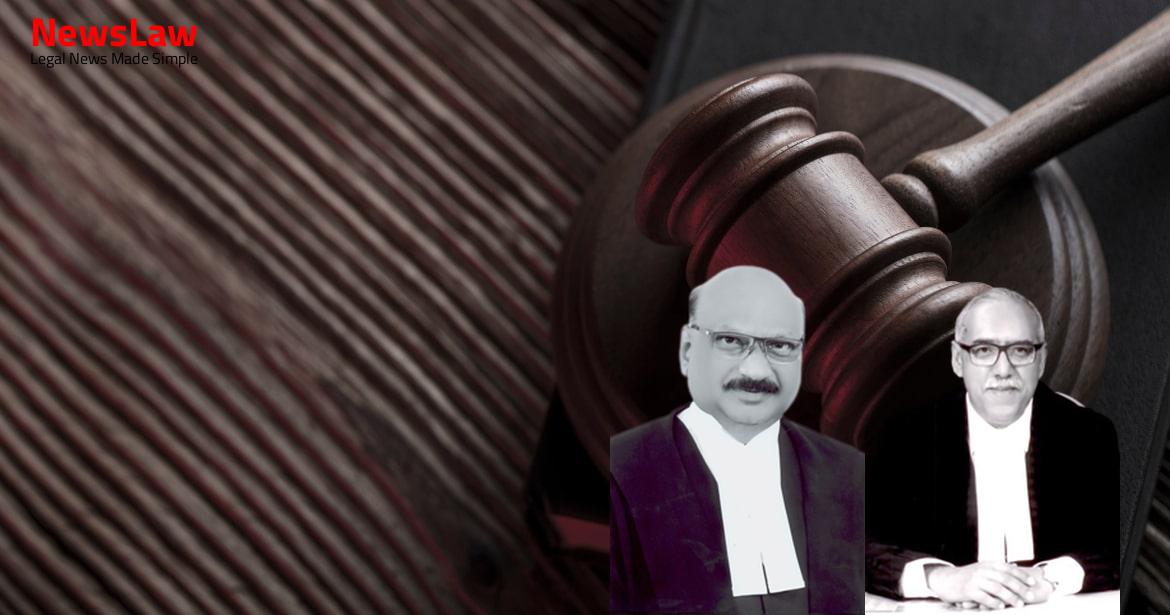The Supreme Court of India recently delivered a significant judgment in the case involving State Bank of India and [Respondent]. The dispute revolved around the invocation of bank guarantees issued to ensure compliance with environmental standards. The Court’s decision sheds light on the importance of upholding contractual obligations and the limited grounds for interference with bank guarantee invocation. Let’s delve into the details of this crucial legal precedent.
Facts
- State Bank of India furnished three bank guarantees to the appellant on 6 September 2011.
- The third bank guarantee worth Rs 10,00,000 covered Part A stipulations required by the Task Force Committee on 26 August 2011.
- The bank guarantees were invoked by the appellant on 12 September 2012 and Rs 25,00,000 was paid by State Bank of India to the appellant.
- The Union Government amended the Environment (Protection) Rules in August 2008, specifying discharge standards for the coffee industry.
- The appellant directed the original name to furnish three bank guarantees to ensure compliance with specified conditions.
- Complaints regarding environmental pollution caused by the original name were received by the appellant and District Collector, Guntur.
- A Task Force Committee was formed by the appellant which issued directions to the original name on 26 August 2011.
- The bank guarantees covered the stipulations in Part A, Part B, and Part C of the directions issued to the original name.
- The Tribunal was approached by the original name after the bank guarantees were invoked by the appellant.
- Bank guarantees were issued to secure compliance with appellant’s environmental norms.
- Tribunal found fault with the appellant for invoking bank guarantees without following principles of natural justice.
- Tribunal deemed the invocation of bank guarantees unwarranted and ordered the refunded amount to the respondent.
- Appellant was required to serve a notice and provide a hearing before invoking the bank guarantees.
Arguments
- The appellant issued a notice to show cause on 9 January 2012 and received a response from the respondent on 16 January 2012.
- The respondent cannot claim ignorance of the bank guarantees being invoked as they were informed through official correspondence.
- Even after the bank guarantees were invoked, the respondent sent a letter of grievance to the appellant on 20 September 2012.
- The Tribunal erred in applying principles of natural justice as a prerequisite for invoking the guarantees, according to the appellant’s counsel.
- The appellant contends that the Tribunal’s finding of a breach on their part regarding offering a fair opportunity to the respondent is contradicted by documentary evidence demonstrating the issuance of notices and the respondent’s representation before the Task Force Committee.
- The judgment of the Tribunal interfering with the invocation of the bank guarantees does not warrant interference.
- The demand made to the State Bank of India was not in terms of the conditions specified in the bank guarantees.
- The respondent complied with the recommendations of the Task Force Committee.
- Verification of compliance by the Tribunal at this stage would be appropriate.
- The tenor of the bank guarantees indicates they were not unconditional, but furnished to secure compliance with specific obligations imposed by the Task Force Committee.
Also Read: CRPF Act: Validity of Rule 27 for Compulsory Retirement – Case of Head Constable vs. CRPF
Analysis
- The Court finds that the principle followed aligns with the Court’s consistent line of precedent.
- The settled legal position indicates that interference with the invocation or encashment of a bank guarantee should not occur unless there is fraud, irretrievable injustice, or special equities.
- The Tribunal’s decision to set aside the bank guarantee invocation was not subscribed to by the Court.
- A bank guarantee is an independent contract between the issuing bank and the beneficiary, separate from the underlying contract.
- The purpose of the bank guarantees was to ensure compliance with environmental standards as per the Task Force Committee’s requirements.
- The appellant rightfully invoked the bank guarantees due to the respondent’s failure to fulfill obligations imposed by the Task Force Committee.
- The respondent was not kept uninformed about the invocation as they also communicated with the appellant post-invocation.
- The bank’s obligation is to pay upon demand as per the terms of the bank guarantee, without assessing the justification of the invocation.
- The State Bank of India fulfilled its legal obligations by paying the guaranteed amount to the appellant.
- The Tribunal’s notion that a hearing should have been provided to the respondent before invoking the bank guarantees was deemed incorrect by the Court.
- The bank guarantees’ purpose was to ensure environmental compliance, not for commercial or industrial purposes.
- The bank contractually committed to paying the guaranteed amount upon demand within the specified limits of each bank guarantee.
- Bank guarantee is an independent contract between the bank and beneficiary.
- Both parties are bound by the terms of the bank guarantee.
- The terms of the bank guarantee are crucial for invocation.
- Bank guarantee should be in unequivocal terms, unconditional, and state that the amount will be paid without objection.
- Invocation of the bank guarantee depends on specific conditions formulated by the court.
- The guarantee should be paid irrespective of any disputes between the parties involved.
- The bank guarantees were invoked based on a review of compliance status in the Task Force Committee Meeting.
- Appellant officials inspected the industry and noted violations before invoking the guarantees.
- Invocation of bank guarantees was as per the conditions specified in the guarantees.
- Tribunal erred in interfering with the invocation of bank guarantees and directing the refund of Rs 25 lakhs.
Also Read: DAMEPL vs. DMRC: Curative Petition and Arbitral Award Restoration
Decision
- Appeal allowed and impugned judgment and order of the Tribunal set aside.
- Issues regarding invocation of bank guarantees addressed in the appeal.
- All pending applications will be considered disposed of.
Case Title: ANDHRA PRADESH POLLUTION CONTROL BOARD Vs. CCL PRODUCTS (INDIA) LTD.
Case Number: C.A. No.-007005 / 2017



